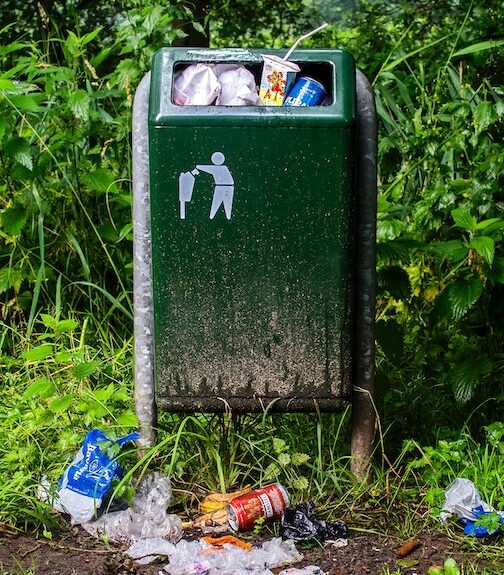Lifestyle & Culture
Fed up New Yorkers fight litter
By Kennedy Gayle
Two weeks ago, Myles Smutney watched a man chuck a bottle out of a car. Responding to that offense, she picked up the bottle and gestured for him to roll down his car window. She threw the bottle back into the vehicle.
She and the man exchanged a few words, she said.
Smutney kept it moving. She doesn’t hesitate, she added, to go toe-to-toe with litterbugs in a city where littering is such a problem that City Hall in April 2023 launched its first clean-up campaign in 15 years. In 2022, a researcher and data journalist for Construction Coverage reported that New York City was the nation’s 8th most littered city.
Smutney founded The Free Store Project, which, in addition to working to combat climate change and to raise people’s overall sense of hope, tries to encourage people to keep their communities clean. The organization regulars community cleanup events.
Litterers are careless and inconsiderate, Smutney said. “$#%@ this neighborhood, it’s not mine” is their attitude, she added, using an expletive that starts with F. “There’s also rent increases and rent rising, and that creates a lot of resentment: ‘And I’m paying how much for this place? And there’s what on my doorstep?’”
Some littering, she said, may be a way of releasing stress.
To her, littering seems to have gotten worse during and since the COVID-19 pandemic. “A lot of litter comes from this sense of not feeling respected” in a society where too many people are poor, angry about that and, in other ways, feeling marginalized, said Smutney, who also fosters dogs. When she’s out walking them, she worries that they will step on a needle, glass or other dangerous trash.
City parks, which are designed for people and their pets to relax, are some of the most littered locations of all. Every summer day, New York City Parks & Recreation Department workers pick up approximately 120 tons of garbage left behind at beaches, ballfields, picnic areas and other green spaces, according to city officials.
After living in New York City for 25 years, United Kingdom native Barry Reynolds, 72, is fed up with litter.
“It really makes me angry,” Reynolds said.
How angry? “I don’t think you can put that down,” he told this reporter, laughing. “It’s not a very nice word.”
Clairissa Mclaurin, 42, ties littering to what she believes is a lack of trash cans in some of the most heavily populated neighborhoods.


